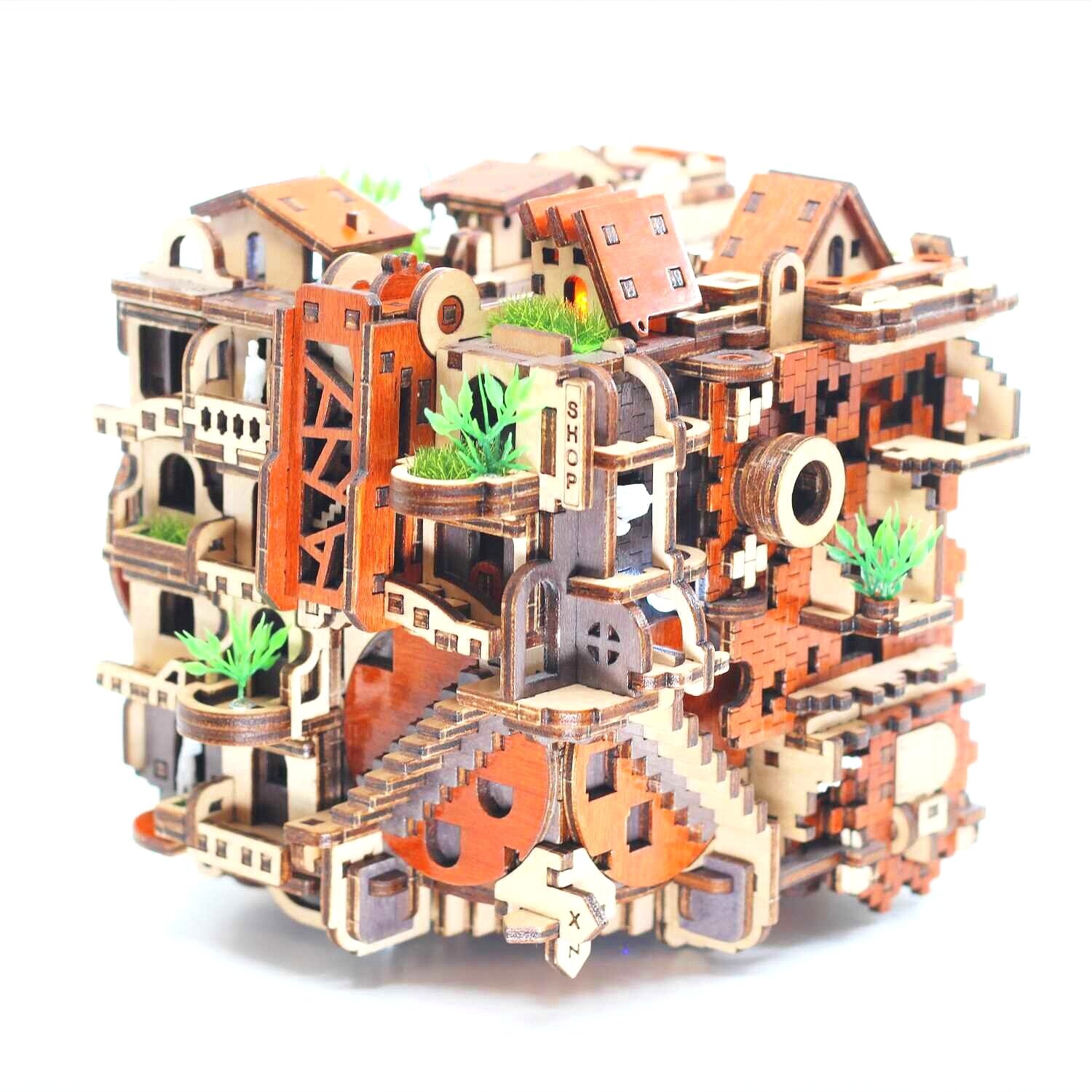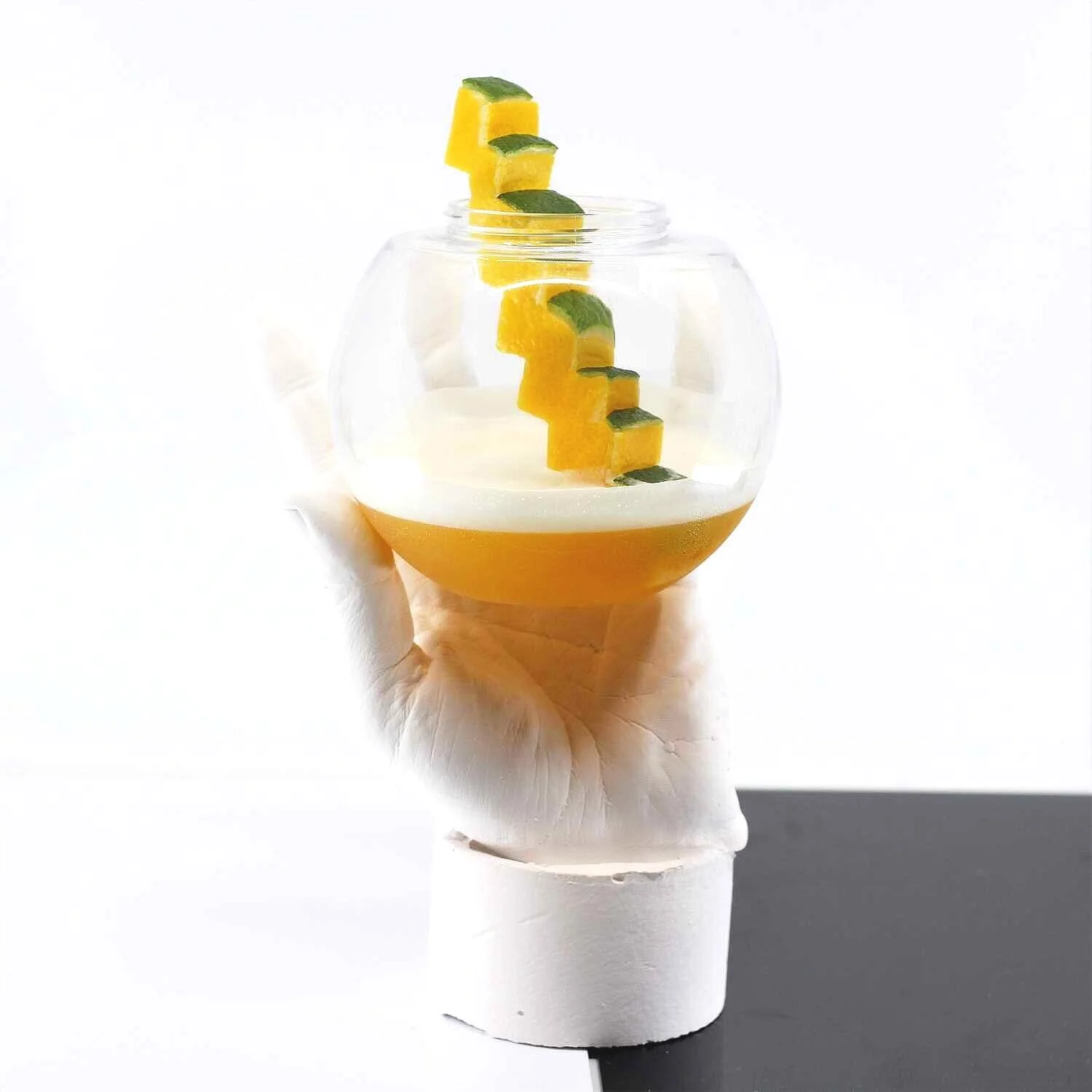Architecto
Dreams of Relativity
“He who wonders discovers that this in itself is wonderful.” ― M.C. Escher
Architecto by Christophe Laronde
Instantly recognizable, the prints of Maurits Cornelis Escher have captivated the minds of so many over the past eighty years. Born in the Netherlands at the turn of the twentieth century, he ultimately found his calling as a graphic design artist. The story goes that in 1936 he visited the Alhambra Palace in Spain and was struck by the tessellating geometry of its tiling, which went on to greatly influence his subsequent work. He is also quoted as suggesting that the “matter of fact” architecture and landscapes of his homes in Switzerland, Belgium and the Netherlands led him to look inward, to his “inner vision”, to create his most famous fantasies. Yet his work is enduring not because it is fantasy, but because it is an altered vision of reality. Escher was mathematical, counting the Penroses as inspiration, and existential, inspired by Dostoyevsky and Camus. Already popular at his death in 1972, Escher was later immortalized in Douglas Hofstadter’s Godel, Escher, Bach which cemented his legacy and inspired a new generation of fans.
An immersive city full of life
Which brings us to one of those fans who has the spirit of Escher within himself as well, Christophe Laronde. In just a few short years the team at NKD Puzzle, based on Lodeve, France, has accomplished the extraordinary, bringing the intricate and beautiful designs of Christophe, better known by his moniker “NeokiD” (source of the company name), to life, while launching and successfully growing their small business. The company, led by Julien Vigoroux, prides itself on using sustainable materials and practices, sourcing locally, and providing broader access to its high-end puzzles through the ingenious and meticulous development of prefab build kits.
artist’s sketch, Architecto
Christophe has a mind full of artistic visions, and each of his unique productions has taken inspiration from an identifiable source and story which he meticulously brings to life in his incredible way. Despite the clear and obvious influence of MC Escher’s “Relativity” on his newest masterpiece, Architecto, the roots for this creation began elsewhere.
mind bending multidimensions
From Christophe: “The trigger for Architecto’s idea was in 2017 when I re-watched the film "The King and the Bird by Paul Grimault." I haven't seen this movie for 30 years! I was less than 10 years old at the time and this work is one of the memories that never faded from my head. Architecto was undoubtedly an idea that I unconsciously kept in the back of my mind because this universe had marked me so much.”
artist’s sketch, Architecto
The animated children’s film, Le Roi et l'Oiseau, originally released in 1952, is a surrealist fantasy tale full of spectacle, enchanting machines, buildings and contraptions. It’s easy to understand how it could spark the imagination of an artistic young mind. It reminds me of the work of Hayao Miyazaki, the Japanese director whose dreamlike films are so compelling. One of my favorite Miyazaki movies is Castle in the Sky, which Miyazaki cites as being influenced by Grimault’s film. And not surprisingly, Laronde also lists the breathtaking flying city of Laputa from Castle in the Sky and its magical machines as an influence on Architecto. Other sources of inspiration Laronde cites are Francois Schuiten, Oscar Reutersvard, Lionel Penrose, Erik Johansson, Francis Tabary and even the cinematic visions of game designer Fumito Ueda.
Christophe had so many ideas, and the design went through innumerable iterations, taking a full year to complete. “There are indeed a lot of ideas that either changed or that I just couldn't fit into the final puzzle. I would have loved to have been able to put these big elevator towers that we see in “Le roi et l’oiseau”, the magnificent water-filled basins that we see in Laputa, and also a whole bunch of other details belonging to all of those dreamlike worlds that made me dream so much.”
The Floating City, artist’s sketch by Christophe Laronde
Despite this, the details he did manage to include are exquisite. Architecto is a magical creation, a fantastical world waiting to be explored. Each side presents a new tableau with its own distinct characteristics and charm. There is something new and delightful to discover everywhere, on each unique path. Functional LED lit lampposts and tinted wall lights adorn the city, which is populated by tiny scale model figurines occupied in their domestic activities and unaware of our observations. Turn the lights on and the city emits a warm, welcoming glow, illuminating new aspects. To help transport one into the experience, the limited edition box set comes housed inside a bespoke attache case, itself shaped like a building which extends the motif and allows a view of the main attraction through little windows. Inside is a "professional kit" (which includes a blueprint containing some useful information, a graduated ruler, a pen caliper, a magnifying glass, a compass, a useful pointer and a stand) meant to bring the solver into the experience as one of the original architects of the construction. None of the items are technically necessary, but they may assist the traveler on the journey. A locked compartment in the case also holds a surprise, patiently waiting for the explorer who returns from the city triumphant after solving the enigma.
Traveling Case with Exploration Kit
Christophe: I discovered M.C. Escher a little later, when I was a teenager. His work instantly made me feel again this strange feeling of fascination in front of these immense and empty spaces.
- As if I was climbing a step again .. as if the stranger, or what I was to discover was like an Escher staircase ... –
artist’s sketch, Architecto
But the challenge was great when I wanted to be inspired by his work because a large part of the things he drew are quite simply impossible to transcribe as is in our space-time (or I have not succeeded in find a way to do it ..). For example on Architecto I wanted to reproduce the stairs that we see in the work Relativity. These stairs are laid out on the inside faces of a cube, but for the purposes of the mechanism I created for the box, I had to reverse their arrangement so that they ended up on the outside. So it's not quite the same, so not what I originally wanted. It's always a nod to his work, but the creation itself is a series of little frustrations like this, it's part of the game.”
An ellusive enigma
Laronde has created a masterpiece, indeed a series of little (and large) frustrations – there are well over one hundred steps required to solve the puzzle and open the box, the most challenging enigma he has ever created. Clues, scattered about the city on every avenue, tucked into corners and alleyways, hidden behind walls, are slowly revealed as you make your way, observing all and understanding little. It is a journey of wonder and enchantment, playing out in a gorgeous multidimensional, illuminated city full of moving staircases, shifting buildings, glorious gears, unaware occupants and magnificent mystery. Let yourself get lost in the world of Laronde’s imagination and share his dream of relativity.
Escher cocktail
Christophe Laronde suggests that potential architects of Architecto come prepared for exploration with “a cocktail and proper attire”. I can’t help you with the latter but the former is familiar territory. Escher was from the Netherlands, and naturally I considered using Dutch genever in this drink but found myself going in the opposite direction on the staircase. I decided to employ the NKD philosophy of locally sourced components and toast their masterpiece with something ineffably French instead. I looked to a few distinctly French ingredients, starting with the apple brandy from the Normandy region known as Calvados. To that I added Suze, a softly bitter gentian based aperitif with citrus undertones popularized in Art Nouveau advertisements during the Belle Epoque.
There are a few steps to this cocktail
I added sweetness with elderflower liqueur, a delicate nectar made from the pretty white flowers that grow in summer along the foothills of the French Alps (among many places, but this is where they were made most famous as a liqueur). The tastes of honeyed pears, perfume, herbs, citrus and vanilla from the liqueur are complimented with honey syrup, which adds depth and complexity to the sweetness. Finally there is a hint of Southern France with the anise flavored aperitif made famous by Paul Ricard and commonly referred to as pastis. The ensemble has a certain je ne sais quoi, and just might be the perfect refreshment with which to contemplate one’s own relativity. Cheers - À votre santé!
Escher’s Treasures
Escher
½ oz Elderflower liqueur
½ oz Suze
1 ½ oz Calvados
½ oz honey syrup
½ oz egg white
2 dashes Ricard
Shake ingredients briskly without ice, then add ice and shake again to chill. Strain into a spherical glass held aloft by a cast of your own hand, and garnish with a citrus staircase.
For more from Christophe Laronde:













